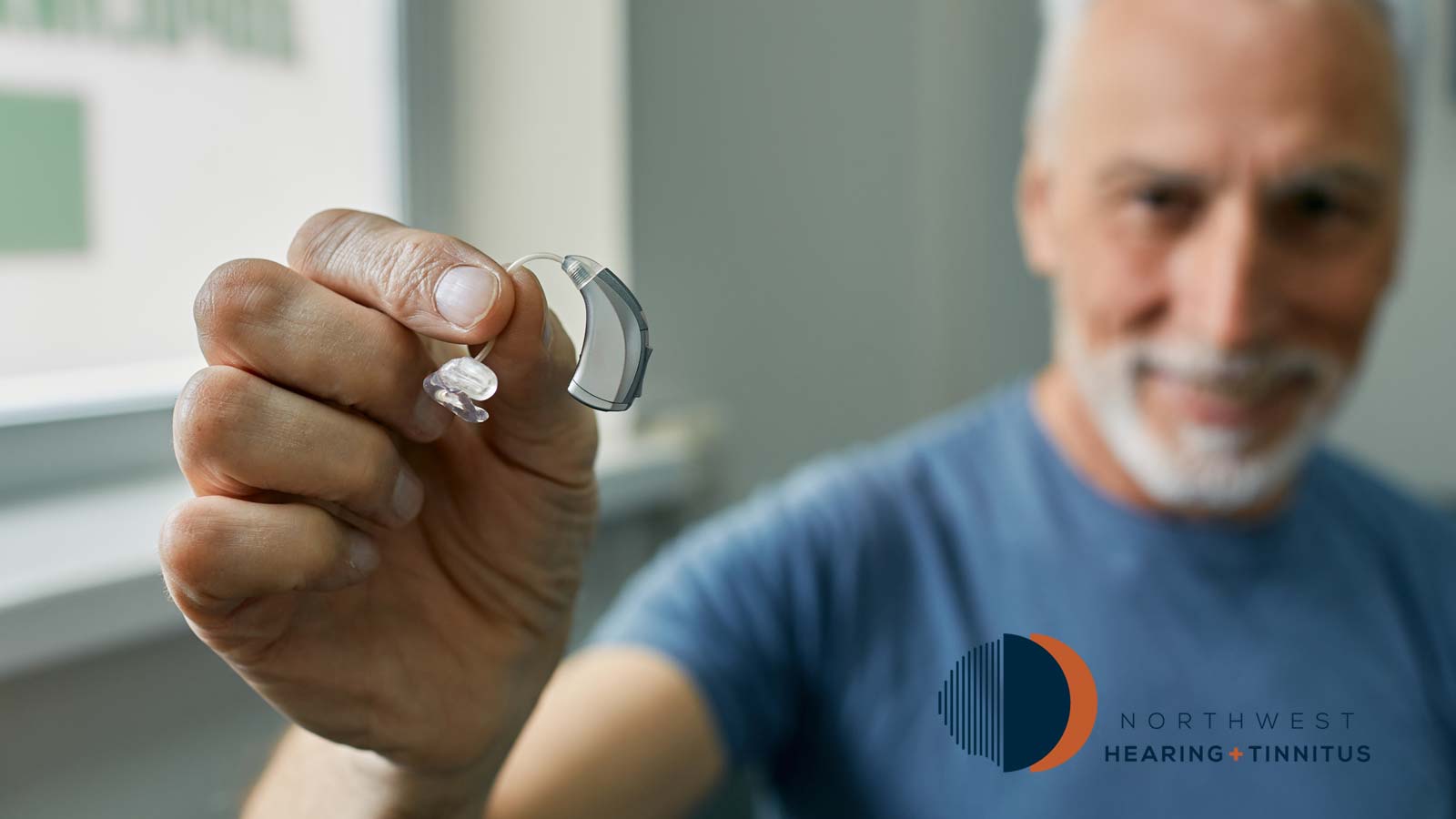Bluetooth Hearing Aids: Pros and Cons
The advent of Bluetooth technology in hearing aids has been a significant breakthrough for individuals with hearing loss. Unlike traditional earbuds used for phone calls or listening to music, Bluetooth-enabled hearing aids offer all-day comfort. At Northwest Hearing & Tinnitus, located in Seattle and Olympia, the advantages and disadvantages of Bluetooth hearing aids are explored to help you make the most of this technology.
Bluetooth vs Analog Hearing Aids
Bluetooth hearing aids stand in stark contrast to their analog counterparts. Analog hearing aids amplify all sounds equally, which can sometimes make understanding speech in noisy environments difficult. On the other hand, digital Bluetooth hearing aids process sounds digitally, allowing for more precise adjustments to the user’s hearing loss pattern. This digital processing enables features like directional microphones, which can focus on the sound coming from in front of the user while reducing background noise, offering a clearer listening experience.
Moreover, Bluetooth hearing aids can be directly connected to various devices, such as smartphones and TVs, providing a seamless audio experience that analog devices cannot match. This direct connection eliminates the need for intermediary devices, making daily interactions more straightforward and enjoyable.
Pros of Bluetooth Hearing Aids
Bluetooth hearing aids come with several key advantages that can be life-changing for people with hearing loss:
1. Facilitated Media Listening
- Bluetooth technology makes listening to music much easier, with designs that help distinguish between various instruments.
- Podcasts become more accessible, enhancing the listening experience during workouts, daily tasks, or travel.
- Connecting your TV to your hearing aids via Bluetooth allows for easy enjoyment of all your programs.
2. Easier Phone Conversations
- Many with hearing loss find phone conversations challenging due to the lack of visual cues. Bluetooth hearing aids stream calls directly, making conversations clearer and reducing anxiety.
3. Enhanced Video Call Experience
- Video chats, like FaceTime, become clearer and louder, making communication with family and friends much easier.
4. Self-adjustments
- Direct connection to a smartphone app allows for easy adjustments without needing to visit an audiologist.
5. Simplified Use of Google Maps
- Following directions becomes more precise, enhancing the navigation experience.

Cons of Bluetooth Hearing Aids
Despite their benefits, Bluetooth hearing aids come with some drawbacks:
1. Connectivity Issues
- Sound may bounce from ear to ear, or music and phone calls might stream to only one ear.
- Problems often arise from improper phone configuration or when multiple Bluetooth devices compete for connection.
2. Increased Battery Consumption
- Features like ‘find my hearing aid’ can drain batteries quickly, especially in older phones.
3. Private Listening
- Others can’t hear what you’re listening to, which might lead to missed interactions with those around you.
Battery Life Solutions
One concern with Bluetooth hearing aids is their battery consumption. However, recent advancements have led to more energy-efficient designs and the development of longer-lasting rechargeable batteries. Users can now enjoy extended use without frequent charges.
Tips for optimizing battery life include adjusting settings to suit your environment, turning off Bluetooth when not in use, and using power-saving modes available in many models. Future innovations promise even greater improvements, with potential developments in battery technology that could offer days of use on a single charge.
Future of Bluetooth Hearing Aids
The future of Bluetooth hearing aids looks promising, with ongoing advancements aimed at enhancing user experience. We’re on the cusp of seeing AI-driven sound processing that can adapt in real-time to changing auditory environments, offering unprecedented clarity and personalization. Integration with an ever-widening array of devices will further blur the lines between medical devices and consumer electronics, making hearing aids a more integral part of the connected world.
Emerging technologies also hint at the miniaturization of devices without sacrificing power or functionality, making future Bluetooth hearing aids virtually invisible when worn. This progress will continue to break down the stigma associated with wearing hearing aids, encouraging more individuals to seek the help they need sooner.
Are Bluetooth Hearing Aids Right for You?
Bluetooth hearing aids offer a mix of pros and cons. They bring significant improvements in how individuals with hearing loss can experience sound, from enjoying music and TV to making phone conversations and video calls more accessible. However, potential users should be aware of issues like connectivity problems and increased battery usage.
Are you considering Bluetooth hearing aids? Northwest Hearing & Tinnitus is here to help. Our team can assist with any connectivity issues or service difficulties you might encounter.
Contact us today for a hearing evaluation or to learn more about the benefits and drawbacks of Bluetooth-enabled hearing aids. Let us help you navigate the options and find the best solution for your needs.
